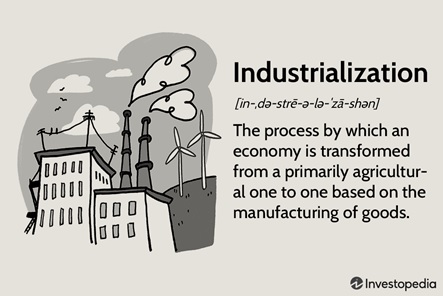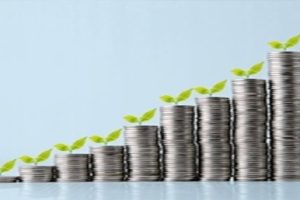
BY MENGESHA AMARE
Needless to state, Ethiopia needs to capitalize on promoting industries; homegrown economy and strong working culture with a view to achieving its long aspired sustainable economic development thereby defeating poverty forever. To this end, thus, well-defined strategy, systematically-organized, competitive and flexible institutions have to be set up as well as strong working culture should be instilled exercised by responsible citizenry.
Finding response to the question how can development and growth wheel be driven well, The Ethiopian Herald talked to Fikru Amentie, who is an economist and working as an economic consultant.
He said, “Developing countries, contrary to developed ones, have a much more important relationship between increasing domestic savings and economic growth. As to me, the means of mutually re-enforcing transformation of agriculture and industry with a view to alleviating poverty has to be practically applied and the agriculture sector needs to be made mechanized and well backed by industrialization.”
He further stated that for many developing African countries like Ethiopia, agriculture has been the centerpiece of national effort to achieve growth, poverty reduction and food security for the estimative future. A key challenge is to make agriculture more worthwhile by raising its profitability through technological innovation and industrial transformation. Yes, he added, productivity increment in agriculture often serves as the catalyst for growth and does have strong effects on reducing poverty. Hence, adapting or developing technologies and improving agricultural markets for seed, fertilizer and agricultural outputs will help make a difference; capitalizing on industrialization needs to come to the forefront, too.
As to Fikru, Ethiopian economy is heavily dependent on agriculture and its economic growth is mostly driven by public investment in infrastructure and agricultural productivity improvement. However, the performance of the sector has not yet been satisfactory as its stagnation, lack of appropriate policies and strategies coupled with poor working culture have been rampant in the nation.
To overcome such a daunting bottleneck, he opined, adopting new technology to suit organizations, public sector offices, companies and public utilities’ ever-changing needs must be well dealt with. Tools that were designed to improve transparency, accountability and productivity across industries and enterprises and pertinent organizations have to be well focused on to boom the national economy.
According to Fikru, the agriculture sector needs to be well backed by industrialization as the latter is well complementary to hit the set national target—recording meaningful economic growth to see poverty off for good.
As to Fikru, industrialization is often essential for economic growth, and for long-run poverty reduction. Undeniably, pro-poor economic and industrial policies need to focus on increasing the economic returns to the productive factors that the poor possess like raising returns to unskilled labor, whereas policies promoting higher returns to capital and land tend to increase inequality, unless they include changes in existing patterns of concentration of physical and human capital.
“Besides, the location of industrial facilities has an impact on overall poverty reduction and inequality. As enterprises are often concentrated in urban areas following ready access to skilled labor force, better infrastructure, larger markets and technological spillovers, industrialization may increase inequality between urban and rural areas. Hence, this imbalance has to be well bridged to make growth real in the nation,” he underlined.
He said, “Foreign capital cannot create permanent basis for higher standard of living in the future, and greater dependence on domestic sources facilitates a more successful implementation of any planned economic development as developing countries’ economic downturn is further aggravated by debts. Even a small change in external capital flows can cause internal economic downturn. The accumulation of domestic savings will help reduce the vulnerability arising from dependence on foreign financing and provide a sustainable long-term financing base for investments.”
According to Fikru, it is time to develop firm commitment to invest in promoting inclusive and sustainable industrial development to effectively address major national challenges such as unemployment, resource and energy deficiency, pollution, effectives of climate change through reinvigorating job creation, knowledge-sharing, innovation and social inclusion.
As to him, as the proper association of economic growth and industrialization would definitely boost investment and promote economic growth, crafting policies that incentivize the creation of new technologies, research and innovation in Ethiopia, recognizing the importance of industrial diversification will help reduce unemployment, enable greater technological development, and increase citizens’ well-being.
He further stated that moving people out of informal subsistence farming into formal manufacturing jobs improves their productivity, makes the agriculture sector more efficient, and raises national revenues through taxation.
“Economists of the 20th century noted that a thriving industrial sector was crucial to the development of a modern economy. Apart from its direct economic impact, industrial development also presents a number of complementary social and environmental benefits,” he added.
Hence, Ethiopia should initiate strategies to promote industrial development, the accumulation of domestic savings and effective utilization of the agricultural sector with a view to accelerating sustainable economic growth across the nation since it is the most powerful instrument for reducing poverty and improving the quality of life in the nation.
Intensified industrialization, well organized knowledge sharing and strong working culture therefore advance human development, which in turn, promotes economic growth. But under different conditions, similar rates of growth can have very different effects on poverty, the employment prospects of the poor and broader indicators of human development, he added.
As to Fikru, a successful strategy of poverty reduction must have at its core measures to promote rapid and sustained economic growth and prompt industrialization. The challenge for policy is to combine growth promoting policies with strategies that allow the poor to participate fully in the opportunities unleashed and so contribute to the intended growth.
He further elucidated that industrial development offers better prospects across both productive and service sectors. Future growth will also need to be industrially tailored and environmentally sustainable. Improved management of water and other natural resources is required, together with movement towards low carbon technologies by both developed and developing countries. With the proper industrial development, workable institutions, growth and environmental sustainability may be seen as complements, not substitutes.
Growth is ultimately about investment in capital and labor and improving the productivity of industries and factories through the processes of industrial advancement as well as innovation and technological absorption. The most pertinent question for developing states like Ethiopia is therefore, how to boost the low levels of investment and productivity growth and how to boost industrial development as it has had an important role in the economic growth and power to drive the overall progress and change wheel well.
Fikru further stated that promoting industrialization and embarking on human capital investment can undoubtedly be as important as investment in machinery and plants for accelerating growth. Investment in human capital is equally focusing on industrialization since it is appealing and directly leads to improved human development thereby helping the nation reap growth and prosperity.
True, he said, a stable macroeconomic environment is crucial to reducing the risks associated with investment as it regulates monetary policy that delivers low and stable inflation, effective management of government tax and spending to deliver public services.
Clearly, as no country has grown on a sustained basis in recent times without successfully integrating into global arena, Ethiopia has to pave ways to well integrate itself with the industrialization avenue via integrating national, continental and international markets in a bid to come up with reliable economic growth which is in turn instrumental in making poverty history. Such a bold move helps the nation foster industrialization, nurture growth, facilitate technology transfer, increase competition and the likes.
In sum, intensifying industrialization coupled with having strong working culture, exploiting homegrown economy, effectively exploiting water resources as well as consolidating saving culture is unequivocally invaluable means to make a difference in all aspects thereby well driving the economic wheel well.
The Ethiopian Herald January 24/2023




